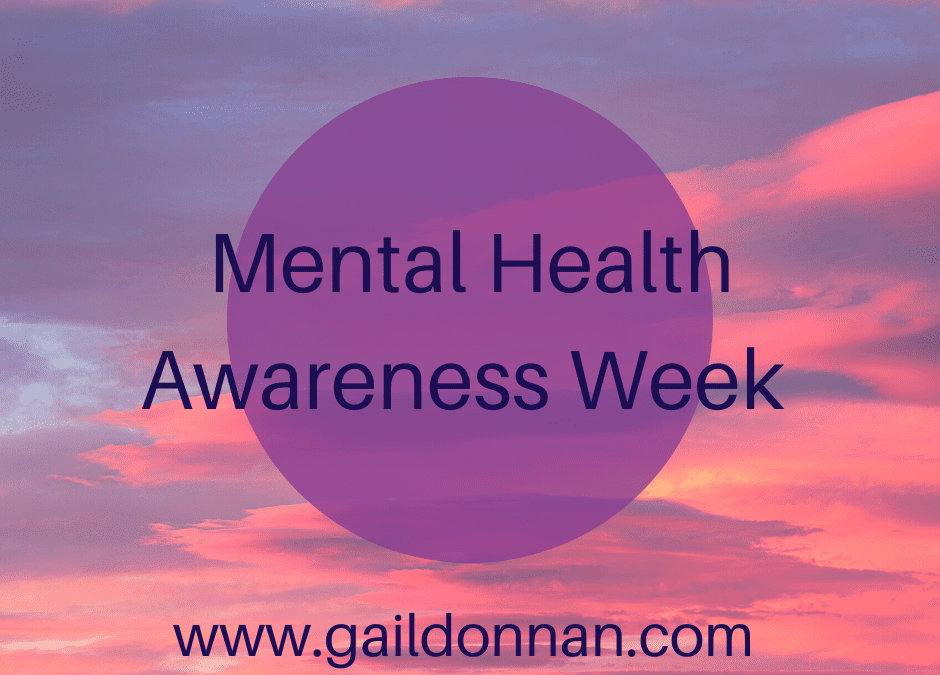Mental Health Week raises awareness of our mental health and as a survivor who went on to train in the field to support and encourage others to reach out for help to recover, I wanted to write a clear and simple blog to help others who may be struggling with depression. Please note that none of this advice or view point is intended as a substitute for professional, diagnosis or treatment.
What is depression?
There is some evidence to suggest that depression has a chemical and biological basis and many researchers believe it is caused by an imbalance of two naturally-occurring chemicals – serotonin and norepinephrine – in the brain and body. Positive life experiences, certain foods, thoughts and affirmations increase levels of our happy chemical serotonin just as modern anti-depressants do. Negative thoughts, worry, guilt, regret, over thinking and letting the brain try to predict the future all contribute.
Having experienced both post-natal and grief linked depression I know full well how those dark feelings can take root and it takes a tool kit of perhaps medication, knowledge of the mind and body, will power, support and change to climb out – but it is possible.
We all have basic emotional needs that must be met in order for us to thrive, survive and enjoy a good work/life balance. After the primary human need for food, water and shelter, come our commonly shared emotional and physical needs. Depression can arise when one or more of these basic needs are not being met.
The term depression is commonly used to describe the unhappiness or distress that follows an unpleasant event. This type of depression is a completely normal response, is short-lived, and is usually resolved pretty quickly without the need for therapy or treatment. In contrast, depressive illness is a much more severe condition, affecting the way you feel, think and act. Constant feelings of sadness together with negativity cause difficulties in coping and an inability to find joy in anything. Sadly, research shows that depression will affect one in four of us at some stage of our lives and not everyone feels brave enough to speak up to ask for help.
Those of us who have not suffered from depression find it hard to understand and think sufferers can just ‘snap’ out of it. To try to explain depression would be to recall the most distressed state you have ever experienced, all the joy in life is gone, you feel as though you are acting in your own life, you try to hide the sadness, you feel like a failure, you are worried, you may have anxiety, you think you are going mad, it is an effort to get up and be normal, you have dark thoughts, you are scared you might do something stupid and then imagine those feelings continuing for months for no obvious reason.
Causes
Research shows there are many causes of depression ranging from relationship issues, isolation, separation, divorce, serious illness, long term stress and anxiety, trauma, abuse, death, a family history of depression as well as chronic medical conditions and hormonal imbalances to a major life change.
Gender facts
Women experience depression twice as often as men, perhaps because women tend to be more likely to share and seek treatment, although men are much more likely to commit suicide as a result. Male depression can often be masked by alcohol, drugs or the socially acceptable habit of working excessively. Men are less likely to feel sad or hopeless, instead depression tends to manifest as anger, irritability and discouragement.
Many hormonal factors may contribute to the reason why more women suffer with depression. Hormonal changes during the menstrual cycle, pregnancy, miscarriage and menopause may be factors. Women these days also face additional stress from working longer hours, being the primary carer of children, single parenthood or caring for elderly parents and young children. Hormonal changes, difficult birth, lack of sleep and the sheer responsibility for a new life can also lead to postnatal depression. Men show other signs of depression that may differ from women in the form of abusing alcohol or other substances, escaping by staying at work late, risk-taking or recklessness, exploding in anger, becoming controlling, violent or abusive.
Below are some basic support strategies:
• Reach out to someone about how you are feeling
• Speak to your GP – only a qualified doctor or health practitioner can formally diagnose clinical depression
• Reach out for some professional help or talking therapies
• Keep positive about recovery and you are not alone
• Avoid caffeine, alcohol, drugs and other stimulants as they affect the nervous system and sleep
• Be kind to yourself, you haven’t failed
• Avoid making important decisions and set realistic daily goals
• There is cerain evidence that serotonin boosting foods and taking regular exercise help (preferably outdoors)
• Assess whether you can see beyond the current sadness or low moods
Gail Donnan is a published author and wellness writer, she has 25 years’ experience in the wellness industry, she is a trained counsellor and coach, has written Mental Health First Aid courses, has qualifications in meditation, mindfulness, Buddhism, Inner Child Therapy and Three Principles Coaching, Bach Flower Remedies, Reiki, Qi Gong, holistic and crystal therapies and appears on Inspire Radio. She owns The Mindfulspace Wellbeing Company (training school and wellness studios) and The Little Lodge both in North Yorkshire where she has a private practice.
AS STATED ABOVE:
Please note that none of this advice or view point is intended as a substitute for professional, diagnosis or treatment.
www.gaildonnan

